fakenews
Latest

Facebook’s fact-checkers say the company is withholding useful data
Facebook has been plucking away at its big fake news problem over the last few months. So far, it has cut off fake news sites from ad revenue and blocked advertisements from Pages that spread fake news. It has also deprioritized false reports and posts shared by high-frequency posters. And the company has also been incorporating fact-checkers into its system who go through articles tagged as fake and look into their claims. If they do turn out to be riddled with errors, the articles get flagged and fact-checked reports will now even show up alongside other related articles in the Trending News section.
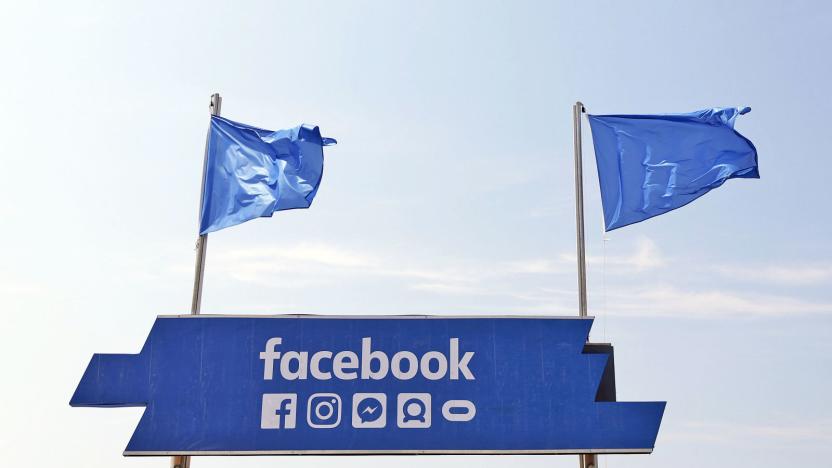
Facebook: Russian group spent $100,000 on ads during 2016 election
"Fake news" was one of the biggest buzzwords surrounding the hotly contested 2016 presidential election, with lots of attention focusing on Facebook's role as a platform for distributing misleading stories. After some reluctance, Facebook has slowly but surely taken steps to keep fake news distribution pages from finding a foothold, and today the company has revealed some data around how widespread the problem actually is. Chief security officer Alex Stamos said in a blog post that Facebook reviewed ad buys and discovered that about $100,000 in ad spend from June 2015 through May 2017 was connected to 470 "inauthentic" pages and accounts -- and it looks like the pages were both affiliated with each other and run out of Russia.
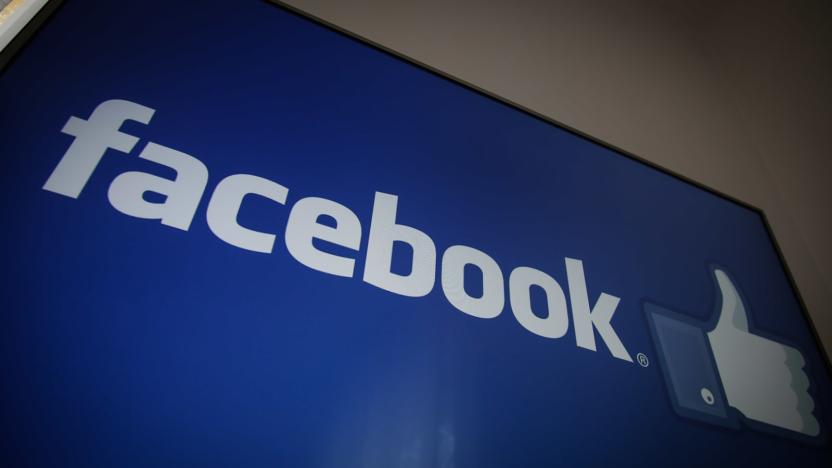
Facebook will block ads from Pages that spread fake news
In its latest attempt to fix its fake news problem, Facebook will now block Pages that spread fake news from advertising on the site. "If Pages repeatedly share stories marked as false, these repeat offenders will no longer be allowed to advertise on Facebook," it said in a statement.

Facebook demotes video clickbait posts to improve your feeds
In a bid to promote "authentic communication," Facebook will now demote clickbait stories that present static images as video along with images with fake playback buttons in them. While the former practice just ends up confusing users, the latter actually tricks people into clicking through to a website. Both techniques are frowned upon by the social network, which says it wants to "improve the integrity of information on Facebook."

Facebook uses AI to detect fake ads
Facebook has been making efforts to be more transparent about its efforts to moderate posts and combat the spread of fake news and other spam, especially after the social network's effects on the recent election in the US. Today, the organization disclosed how it is using AI to help combat the issue of "cloaking" in Facebook News Feeds.

Facebook's related articles will add fact to fake news shares
Facebook's related articles section can now help you determine whether a story that's being shared on the website is nothing but a hoax. After hearing from users about how related articles give them more perspectives and additional info, the social network has decided to use it to help people figure out which stories are real or fake. Going forward, the company will be using an updated algorithm that can pinpoint potential fake news based on users' comments and reports. It will then send those stories to third-party fact checkers.
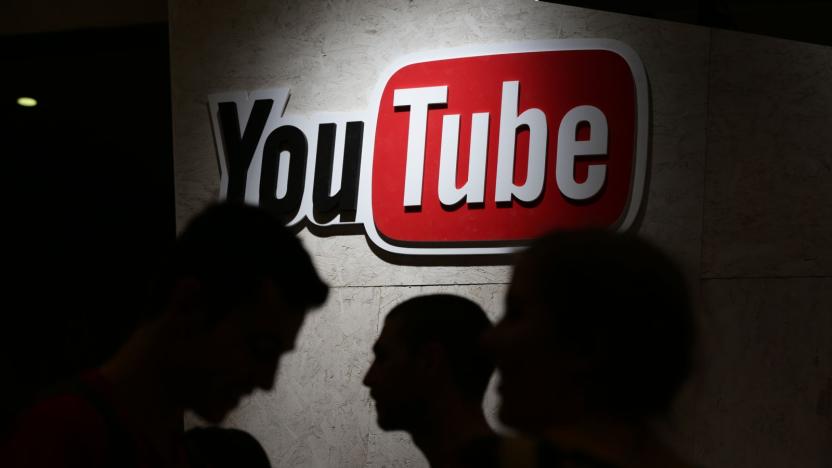
YouTube's fake news course has reached just 500 kids
You've got to hand it to YouTube: despite overwhelming odds, Google's video wing keeps pushing through with its Internet Citizens program. By its count, the video service has educated some 500 people about the dangers of misleading or outright fake news. YouTube wants to boost that number by quite a bit. The hope is to reach 20,000 more people via workshops, youth workers and schools in the UK, it writes. Considering how young the platform skews, perhaps its new tactics will be fruitful.

Snopes needs money to continue fighting fake news
When you want to find out if something on the internet is true, you head to Snopes.com. The venerable fact-checking site, established in 1994 by David Mikkelson, is now part of Poynter's International Fact-Checking Network, the group that Google and Facebook use to deal with the recent rise in fake news. Unfortunately, Snopes is having trouble with revenue and has gone to GoFundMe to stay afloat on while it deals with legal issues around advertising.

Facebook disables modified link previews to fight fake news
Facebook has begun implementing a new feature that can prevent fake news from making it on the social network. It has started killing non-publisher Pages' ability to edit the link previews that appear on the website when they post a story, including its headline, image and the text snippet that goes along with them. The social network says the new feature will "help eliminate a channel that has been abused to post false news."

Propaganda bots dominate social networks in some countries
It won't shock you to hear that governments and shady political groups will use social network bots in a bit to control the flow of information. But just how prevalent are they? Depending on where you live, they might just dictate the social media landscape. Oxford University researchers have published a study showing that "computational propaganda" (bots and other coordinated campaigns) is practically par for the course in some countries. In Russia, for instance, 45 percent of Twitter activity stems from "highly automated" accounts. And Ukraine is a "frontline" for just about everyone -- Russia, Ukrainian nationalists and civil society groups are all using digital propaganda systems in a bid to sway public opinion.

Facebook rebuffs Pakistan request to link accounts to phone numbers
Pakistan has gone to great lengths to track technology users in the name of censorship and security, but it's not going to get very far with Facebook. The social network has turned down a government request to link phone numbers to accounts in a bid to cut back on fake accounts posting illegal content, such as sacrilegious statements. Facebook will remove fake accounts, a spokesperson tells the Express Tribune, but it also has to protect the rights of its users.

Recommended Reading: Spotify's other playlist problem
Spotify Sweats Over Bandwidth Problem as Labels Vie for Playlist Spots Andy Gensler , Billboard Spotify was forced to defend itself against allegations it uses fake artists to cut costs last week, but the streaming service is facing another playlist problem. Billboard reports on the limited amount of space that record labels have to promote tunes on the service. Labels want their tunes at the top of the streaming charts, so the pressure is on the most popular subscription option.

Facebook says high-frequency posters often share fake news
Facebook has taken another small step in its very mild battle with fake news. The website will now begin to deprioritize the links posted by users who share large amounts of posts each day.

Twitter is toying with a 'fake news' reporting feature
Twitter is working on a new tool to fight the spread of inaccurate, harmful and misleading articles online, according to The Washington Post. The company is apparently prototyping a feature that would allow users to flag tweets circulating false or injurious information, though the report says the project is still in the early stages and may never see the light of day.
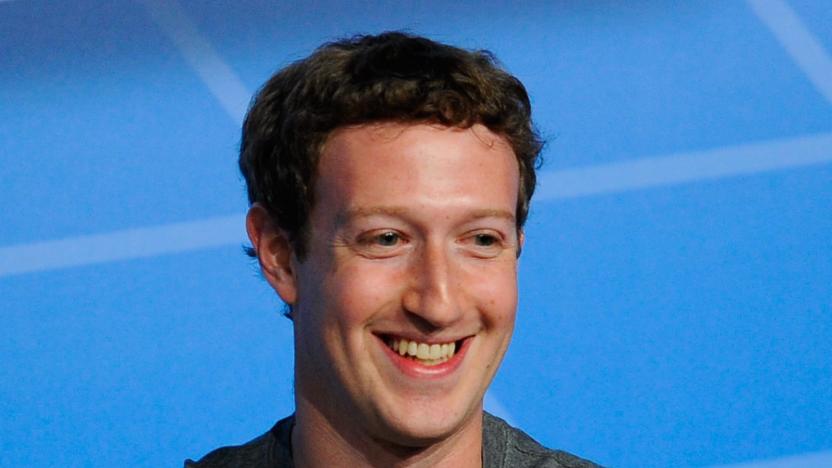
Facebook, not presidential ambition, is why Zuckerberg’s on tour
There's been a lot of speculation around whether Mark Zuckerberg is or is not planning to run for office. From his nationwide tour to his rejection of atheism, there have been quite a few moments that could be interpreted as a lead-up to a presidential bid, but I don't think that's what is happening with Zuckerberg and neither does Nathan Hubbard, former Ticketmaster CEO and Twitter VP.

Recommended Reading: Netflix trims its library of original shows
'The Get Down,' 'Sense8' Cancellations Signal That Netflix's Originals Are 'Destructible' Daniel Holloway, Variety In the span of about a week, Netflix cancelled both The Get Down and Sense8 -- two noteworthy series from its slate of original shows. The streaming service seemingly renewed everything, but now a couple of its more anticipated shows won't return. Variety has a look at what this means for the company, including reasons why these two shows in particular won't be coming back. It turns out producing a Baz Luhrmann show is even more expensive than initially anticipated.

Qatar blames current crisis on fake news inserted by hackers
This week a diplomatic crisis hit the Middle East as several countries (Saudi Arabia, Bahrain, Egypt, the United Arab Emirates, Yemen and Maldives) cut ties with Qatar, accusing it of supporting terrorist groups. Now Qatar's foreign ministry has issued a statement putting some of the blame on a fake news story. In a statement, the ministry said hackers installed a fake file on the Qatar News Agency last April, before activating it Monday morning. Reuters reports that file claimed Qatar's Emir Tamim bin Hamad al-Thani made statements warning against confrontation with Iran, and gave support to groups like Hamas and Hezbollah. Qatari officials did not identify who it believes pulled off the hack, but thanked the FBI and the British National Commission for Combating Crime for their assistance in the investigation. Previously, CNN claimed that US government investigators believed hackers based in Russia were behind the breach -- a claim that Russia's government has denied.
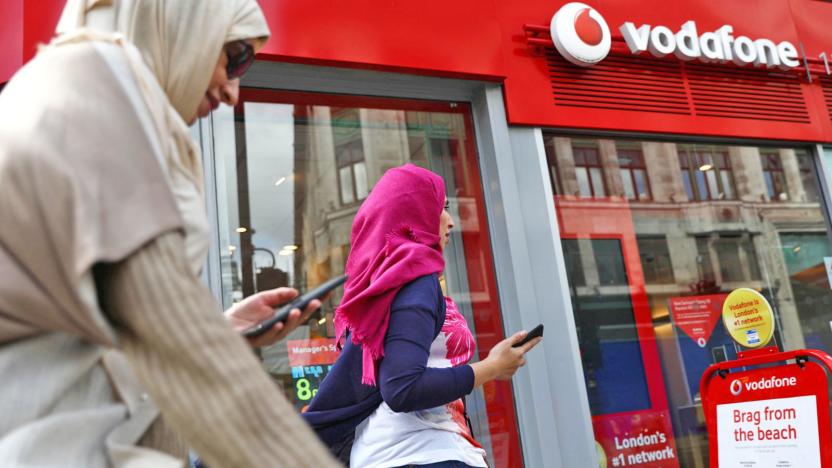
Vodafone tries to keep its ads away from fake news sites
After Trump was elected President, folks clamored about the toxic sites that helped deliver him to the White House. The backlash pushed companies to distance themselves from some of them, and literally cost others income, like when major advertising firm AppNexus pulled all its ads from Breitbart last November. Today, global telecom Vodafone has taken a similar stand by blocking its ads from appearing on sites that promote fake news and hate speech.

Google is using games to teach kids about online safety
With the rise of phishing, malware and fake news, it can be hard for adults, let alone children, to identify what's safe and what's not. Parents can teach internet best practices, but companies like Google want to share the load. With its new project, Be Internet Awesome, the search giant has created a new program that helps young people make "smart decisions online." It includes a clever online learning game for kids, a 48-page curriculum for teachers and schools, and a video series for parents to watch alongside their children.

Facebook: German bill isn't 'suitable' to fight hate speech
Germany says sites like Facebook and Twitter aren't doing enough to combat hate speech and fake news on their platforms. The country's Ministry of Justice proposed a bill that, if approved, would fine social networks and other websites up to 50 million euros ($53 million) if they don't remove the content quickly. Well, Facebook says the Network Enforcement Act (Netzwerkdurchsetzungsgesetz or NetzDG in German) in its current form is "not suitable to combat hate speech and false news."











